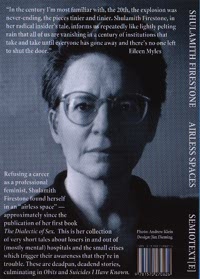Balkan Roma Dream of Life in Germany
By Özlem Gezer
Since the European Union began allowing visa-free travel for Serbs and Macedonians, there has been a sharp increase in Roma from the Balkans applying for asylum. Despite the difficulties, Germany remains the promised land for those in the slums of Skopje and Belgrade.
FROM SPIEGEL INTERNATIONAL ONLINE
http://www.spiegel.de/international/europe/germany-remains-promised-land-for-roma-in-serbia-and-macedonia-a-866760-2.html
For Orhan, the road to Germany begins in an Internet café on a side street in Shutka, the Roma neighborhood in the northern part of the Macedonian capital, Skopje. Electric cables hang from the ceiling, a white fluorescent tube illuminates dusty computer screens and a plastic tarp serves as a divider. Orhan, 27, is standing nervously behind the tarp as he lights a cigarette. His sister Fatima is sitting in front of one of the monitors, about to have her first date with Germany.
While Fatima waits on a wooden chair in Shutka, her future husband is sitting on a leather couch in Düsseldorf, looking at his webcam. They are seeing each other for the first time today. Fatima's ticket to Germany is 19, he's wearing a hoodie and he's rather fat. Fatima's mother and some women from the neighborhood are chaperoning the meeting. They all want to know whether Fatima will like the young man from Germany. They hope that if she does, her family could get out of Shutka, the unofficial capital of the Roma community in Europe.
When you walk through the streets of Shutka, you hear people cursing, saying things like "Shitty Shutka," "everyone makes fun of us here" and "we don't have any money." They say these things in German.
Some of Shutka's Roma worked as day laborers in German cities in the 1990s. Many were war refugees who had sought asylum in Germany during the war in Yugoslavia, only to be deported after the conflict ended. They still have friends and relatives in Germany, and the country is always on their minds, as a promise of prosperity and a better life.
Orhan says that if the arranged marriage goes well, the stranger will come to Shutka and take Fatima with him to Düsseldorf. The new son-in-law, he explains, will then pay for bus tickets for the rest of the family. And once all seven family members are in Germany, he will file the asylum applications for them. Orhan says that one always needs a helper, someone who is familiar with German law, an asylum guide, so to speak, so that everything works out well for a new beginning in Germany. People who try to do it on their own, he adds, make too many mistakes.
Serbia Closer, and Farther Away
The Roma neighborhoods of the Serbian capital, Belgrade, are 450 kilometers (280 miles) closer to Germany, but for the people there, Germany seems much farther away. In Antena, an illegal settlement at the end of the No. 75 bus line, there is no Internet and no Skype, and none of the residents have relatives in Germany. For that reason, there is no one to show people the best way to get there. There are only people like Asim, 25, who is standing behind a burning pile of garbage, warming his hands. He has no identification documents and no birth certificate, which means no work, no welfare and no child benefits. Car tires support the cardboard roof of his corrugated metal hut. Inside, Asim's wife is nursing their six-month-old daughter, who is wearing diapers made of napkins Asim has collected from the garbage of Belgrade residents. The adults use holes in the ground as their toilets. The air is filled with the smell of moldy food and the acrid stench of burning plastic.
Asim says it's a good day in Antena when the gravediggers at the adjacent cemetery don't turn off the water, so that residents of the shantytown can fill up their plastic bottles. They count themselves lucky when the power is on in the nearby residential neighborhood so they can illegally siphon off electricity. They're happy when they manage to protect their daughter's face from rat bites at night. Asim asks: "When, if not now, should I get out of this miserable place?"
Since the end of 2009, citizens of Macedonia and Serbia no longer need visas to enter Germany. The European Union wants to show its goodwill to the two countries, which are candidates for accession to the bloc. But for the poorest of the poor in Macedonia and Serbia, visa-free travel represents the freedom to get away.
Less than 1 percent of asylum applications from Serbia and Macedonia are accepted. People suspect that they too will be unsuccessful, but they don't understand why. They still go to Germany, and they want to stay. Everyone has their own approach to obtaining the better life he or she expects to find in Germany. Orhan from Macedonia wants to send his sister in advance. Asim from Serbia simply plans to set out into the unknown. Some are poor and without prospects, and they go to Germany because they know what a rich country it is. Others go there because they can no longer stand their current lives.
By October of this year, about 4,000 people from Macedonia had filed an application for asylum in Germany -- about five times as many as last year. Only Serbia has produced more asylum applicants since this summer, a total of about 7,000. Most are Roma.
Dreams of Welfare
The current offers are displayed in the window of a travel agency on the market square in Shutka. A bus ticket from Macedonia to France costs €27 ($34), while the trip to Düsseldorf goes for €120, even though it's a shorter distance. Orhan explains that demand determines the prices here, and that Germany happens to have the better reputation among the 40,000 people in Shutka.
Their mayor is the only mayor in Macedonia who is also Roma. Nevertheless, Shutka doesn't feel like home to many of its residents. The people on the market square dream of a life in Western Europe, with most hoping to go to Germany. Unlike residents of the Belgrade neighborhood, the people in Shutka are well informed about Germany's social welfare system. They talk about "job centers," and some even use German slang terms. They know how generous the child benefits are, and they have heard about the hospitals and schools. They also know that asylum applicants have been receiving more money since August.
Young men like Orhan are mainly responsible for Germany's good reputation in Shutka. They tell nostalgic stories of the paradise between Fürth in Bavaria and Osnabrück in the north, of the country they remember from their childhood. Orhan's parents fled from Albania to Paderborn in northwestern Germany in 1986. The Roma family applied for asylum there, Orhan went to elementary school and learned the language. The family's German dream lasted six years.
It ended in the early 1990s, when the government in the state of North Rhine-Westphalia decided it wanted to get rid of the Roma. But instead of simply deporting them, the Social Democrats came up with a so-called reintegration program. The idea was to help the deportees once they had returned to their native countries. Orhan's father accepted the Germans' repatriation offer, for which he received 300 deutschmarks for travel expenses, as well as 400 deutschmarks a month for six months to help him settle in Shutka.
The family lived in a 60-square-meter (645-square-foot) house in Shutka, paid for by the state of North Rhine-Westphalia, in a place with no sewer system, running water or garbage collection. No one there had a real chance at finding work. Most of those who were reintegrated had never been to Shutka before. The aid workers stayed for a few years, and then left. Orhan points to the now-abandoned Red Cross building and to the pile of rubble where the Caritas relief agency had its offices.
For Orhan, Shutka is Europe's biggest ghetto, a place where people live outside, steal and take drugs. A place where the water for an entire block comes from a single green hose. Where a man gets hit by a car and sits in front of his house, his leg shaking, waiting in vain for an ambulance. The district has no hospital or fire department of its own, and the police rarely make an appearance. Shutka owes its survival to the Western Union office on the market square, where residents go to pick up the money their relatives wire them from Germany, or sometimes from Italy or Switzerland.
Orhan also receives money from relatives once in a while, sometimes €50 and sometimes €70. Like most of his friends, Orhan is unemployed. "I work privately," he says, which is his way of describing the ordeal of polishing cars for 12 hours a day at a car wash to make €5, or collecting 300 plastic bottles to get €4 back in deposits.
Orhan has two children. He buys individual Pampers for his youngest child because he usually can't afford an entire package. The power has been shut off for years because Orhan didn't pay his bill.
His best friend Dino was also reintegrated from Germany. The two men get together in the evening at a café on the market square, a meeting place for unemployed young men, and speak German with each other. Germany donated the buses that are driving by outside, and there are still signs on the doors that read (in German): "Please show your ticket." The promised land is omnipresent in Shutka.
When Orhan visited Paderborn a few months ago, he polished cars for €50 per day, in cash. Dino went to Cologne, and since then he has been fantasizing about new clothes from H&M and Zara, and a kindergarten for his three daughters. He doesn't want to sleep with his wife on his grandfather's couch anymore. "Germany helps everyone -- Africans, Arabs -- why not us?"
When Orhan and Dino, the local Germany experts, talk about the country they used to call home, everyone who has never been there listens raptly. Dino has the gift of gab, which he even uses to make a little money. When a woman suffers from depression, he drives out evil spirits. When a child fidgets too much, it's the fault of the neighbors' envy, which Dino then chases away.
"Better Illegal in Germany than Invisible in Serbia"
Orhan and Dino rarely leave Shutka. They say that those who come from Shutka can't find work in downtown Skopje. But things are also getting worse in Shutka, where a third of the vendors at the large bazaar have closed their stands and moved to the West. A few weeks ago, a German friend of Dino's wrote to him on Facebook: "Brother, all your people are here. Why don't you come?"
More than anything else, it is the stories about Germany told by the returnees that convince others to try their own luck. Asim, in the Serbian shantytown, was also encouraged by one of these stories. A few weeks ago, he met someone for the first time who raved about Germany. They sat next to the burning pile of plastic as the man told his stories. He talked about the health insurance card that entitled you to medical treatment, the clean streets in Bonn and his favorite football club, Bayern Munich. The stories gave him hope, says Asim.
A few days ago, he was given the business card of a Serbian member of the Roma community who smuggles people across the border, even those without papers, in a minivan. The trip to Germany would cost Asim €680: €200 for him and his wife, €80 for their six-month-old daughter and €400 to bribe the guards at the Serbian border. Anything is better than crawling around in everyone else's filth here, says Asim. "It's better to be illegal in Germany than invisible in Serbia."
Since 2009, Belgrade has removed seven of more than 100 illegal Roma settlements like Antena from the city center.
Controls have been tightened at Serbia's borders in recent weeks, now that governments in the Balkan countries are worried they could lose their visa exemptions again. The move to eliminate the exemptions is being spearheaded by six EU interior ministers who have complained about the rise in asylum applications from Macedonian and Serbian nationals. One of them is German Interior Minister Hans-Peter Friedrich, a member of the conservative Christian Social Union (CSU), who said last month: "The massive influx of Serbian and Macedonian citizens must be stopped immediately."
Dreams of Deutschland Not Dashed
Friedrich's fears have had no effect in Antena, where the smugglers are still taking orders. Asim wants to leave in December. He says he will be able to pay the smugglers in installments once he has arrived in Germany and starts receiving money from the government.
Although people in Shutka are very familiar with the political debate, it hasn't prompted them to change their travel plans.
Orhan also has reason to believe that he could be leaving soon. The foreigner from Düsseldorf has sent a message saying that he liked Fatima, and that he will come to Macedonia in the next 14 days to propose to her. Fatima is sitting in one of the back rooms. She had deliberately left her hair unkempt and didn't paint her chewed fingernails. "He's so fat," she says over and over again.
But even Fatima says that perhaps it's the best thing for her and her family. Orhan says that they'll charge a €5,000 dowry for Fatima, because she is, after all, still a virgin. And if the new son-in-law decides not to help the family enter Germany, they'll handle everything on their own. Orhan says that it's time to get out of Shutka, the ghetto, and return to their old home.
Translated from the German by Christopher Sultan
---------------------------------------------------------------------------------------------------
While i appreciate all the work Germany has done, I still think it speaks volumes about the situation in Eastern Europe when Romani see Germany as the 'promised land'.
Morgan


















